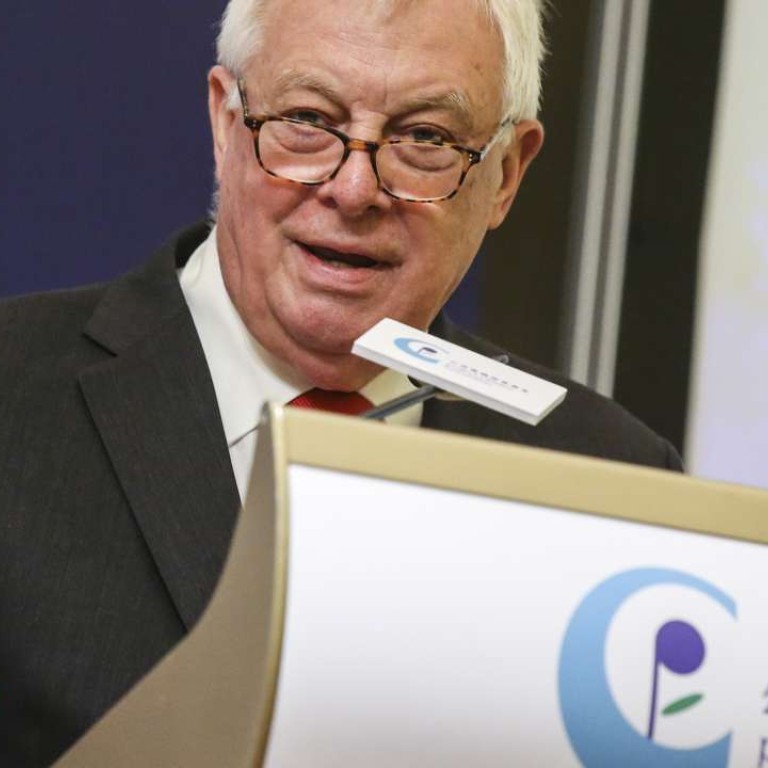
Ignore people’s aspirations at your peril, Hong Kong’s last governor warns
Chris Patten says failure to hold a dialogue ‘can easily turn moderation into extremism’
Failure to manage political aspirations sensitively “can easily turn moderation into extremism”, Hong Kong’s last colonial governor warned on Saturday.
Chris Patten, who is in the city for a short visit, also described the rule of law as “the most important guarantee” of the city’s freedom, stability and well-being.
Addressing about 400 people, including academics and democratic lawmakers, the Oxford University chancellor explained the importance of governance that has citizens “at its heart”.
He said the key features of a well-governed community included the rule of law, democracy and political stability.
“Political stability is ... more likely when a government is sensitive to the aspirations of its people,” he told the Project Citizens Foundation’s forum.
“If you fail to do this you can easily turn moderation into extremism. If you refuse to hold a dialogue with young people about their frustrations and legitimate aspirations, it’s not surprising that they go rather further and insensible in pressing their case.”
Patten, who governed from 1992 to 1997, was speaking amid an ongoing debate about how Hong Kong and Beijing authorities should handle pro-independence activists in the city.

On Friday, Patten described the push for independence as “something which dilutes support for democracy”, and said it would be a tragedy if the “moral high ground about democracy” established in the 2014 Occupy protests was “lost because of a few antics”.
Leung, who attended the forum on Saturday but did not have a chance to ask questions, had disagreed with the former governor’s arguments. The localist argued that the lack of democratic reform in the past two years “proved that ‘moral high ground’ can yield nothing”.
Patten responded on Saturday that while it was important to “engage in dialogue with those who don’t just want more democracy”, he would insist that “the sensible thing to focus on in Hong Kong is greater democracy”.
Patten also commented on the Causeway Bay booksellers saga, in which mainland officials were accused of abducting five Hong Kong booksellers who sold books banned across the border. He said it was hard to imagine “an abduction with so little international outrage expressed about it, and not least by the signatory of the Sino-British Joint Declaration”.
The Democratic Party’s founding chairman, Martin Lee Chu-ming, then asked Patten what would he do to follow up on Hong Kong’s situation as a peer in the British Parliament.
Patten said: “I hope that we’ll be able to continue to excite enough interest in the British Parliament and in the media about what is happening here ... I’ll go on writing and speaking about Hong Kong.”
He again declined to comment on whether Chief Executive Leung Chun-ying had done a good job, or if Financial Secretary John Tsang Chun-wah – Leung’s potential challenger and formerly Patten’s private secretary – would do better. On Tsang, Patten would only say: “He was a very good private secretary.”

